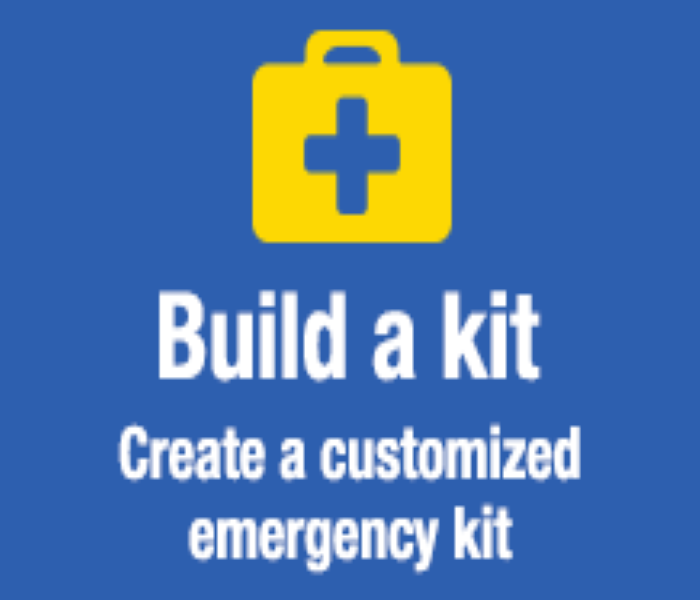National Preparedness Month: Week Three – Build an Emergency
9/22/2016 (Permalink)
September is National Preparedness Month
Week Three – Build an Emergency Kit
Build an Emergency Kit:
Having an emergency supply kit is an essential component of personal and family preparedness Emergency kits should include essentials items that will help sustain you and your family for up to three days in the event you are isolated in your home without power during disaster.
First, think about essential items you will need for basic survival: water, food, warmth, clean air, and necessary medications, or medical equipment. Additionally, utilities and basic services such as electricity, gas, water, sewage treatment, and telephones may be cut off for days or weeks. Your supply kit should contain items to help you manage during these outages. Make sure your emergency kit is customized to meet the unique needs of your family.
At a minimum your kit should include:
- Water: Bottled water (one gallon per person/per day for at least three days), water purification tablets
- Food: At least a three-day supply of non-perishable foods that do not need cooking (ready-to-eat canned meats, fruits, vegetables, or juices, protein or granola bars, cereal, peanut butter, dried fruit, nuts, crackers, baby food, comfort foods)
- Tools and Supplies: Manual can opener, Radio (battery-powered or hand crank), flashlight or lantern, extra batteries, cell phone with charger, wrench, pliers, and other basic tools
- Personal Items: Prescription medications (two-week supply), personal hygiene items, eyeglasses, contact lenses, dentures, extra batteries or supplies for medical equipment, change of clothes, sturdy shoes
- Pets: Collar, leash, harness, crate, food, bowls, current photo, license and medical information
- Documents: Insurance policies, bank account records, identification cards (IDs), medical information, and other copies of important documents
- Money: Extra cash and traveler’s checks (ATMs may not work during a power outage)
- Other Items: First-aid kit, emergency whistle, waterproof matches/lighter, local area maps, diapers, wipes, formula, and baby food and supplies (if needed)
Also consider adding:
- A watch or clock
- Household chlorine bleach, which can serve as an emergency disinfectant of drinking water
- Camp stove or grill with fuel or canned heat, neither of which should be used indoors
- Disposable plates, cups, and utensils
- Duct tape, plastic sheeting or tarp
- Seasonal items to protect against the elements
- Books, games, puzzles, and other comfort items
- Sleeping bags or blankets.






 24/7 Emergency Service
24/7 Emergency Service
